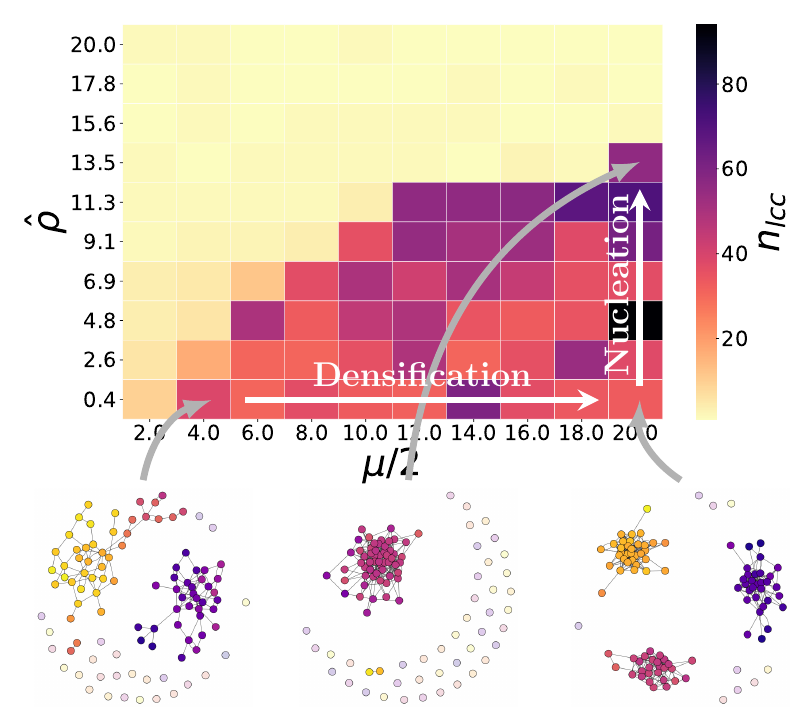Social nucleation: Group formation as a phase transition
Frank Schweitzer and Georges Andres
Physical Review E (2022)
Abstract
The spontaneous formation and subsequent growth, dissolution, merger and competition of social groups bears similarities to physical phase transitions in metastable finite systems. We examine three different scenarios, percolation, spinodal decomposition and nucleation, to describe the formation of social groups of varying size and density. In our agent-based model, we use a feedback between the opinions of agents and their ability to establish links. Groups can restrict further link formation, but agents can also leave if costs exceed the group benefits. We identify the critical parameters for costs/benefits and social influence to obtain either one large group or the stable coexistence of several groups with different opinions. Analytic investigations allow to derive different critical densities that control the formation and coexistence of groups. Our novel approach sheds new light on the early stage of network growth and the emergence of large connected components.

